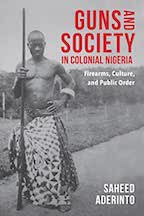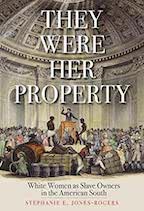 The Dan David Prize is awarded by the Dan David Foundation at Tel Aviv University in Israel to up to nine early and mid-career scholars and practitioners in the historical disciplines. The honor comes with a $300,000 prize. The prize was established in 2001 by Dan David, who lived through Nazi and Communist persecution in his native Romania before becoming a global business leader and philanthropist. The prize has the goal of rewarding and encouraging innovative and interdisciplinary research that cuts across traditional boundaries and paradigms. The prize is given in recognition of the winners’ contribution to the study of the past and to support their future endeavors.
The Dan David Prize is awarded by the Dan David Foundation at Tel Aviv University in Israel to up to nine early and mid-career scholars and practitioners in the historical disciplines. The honor comes with a $300,000 prize. The prize was established in 2001 by Dan David, who lived through Nazi and Communist persecution in his native Romania before becoming a global business leader and philanthropist. The prize has the goal of rewarding and encouraging innovative and interdisciplinary research that cuts across traditional boundaries and paradigms. The prize is given in recognition of the winners’ contribution to the study of the past and to support their future endeavors.
Of this year’s nine winners, two are Black scholars with university affiliations in the United States.

 Saheed Aderinto is a professor of history and African and African diaspora studies at Florida International University. Professor Aderinto describes himself as a serial methodologist and decompartmentalizing historian who adopts multiple disciplinary tools in understanding the past while blending different genres of history to reveal the complexities of people and events that came before us.
Saheed Aderinto is a professor of history and African and African diaspora studies at Florida International University. Professor Aderinto describes himself as a serial methodologist and decompartmentalizing historian who adopts multiple disciplinary tools in understanding the past while blending different genres of history to reveal the complexities of people and events that came before us.
Dr. Aderinto has written a number of books, including When Sex Threatened the State: Illicit Sexuality, Nationalism, and Politics in Colonial Nigeria, 1900-1958 (University of Illinois Press, 2014), Guns and Society in Colonial Nigeria: Firearms, Culture, and Public Order (Indiana University Press, January 2018), and Animality and Colonial Subjecthood in Africa: The Human and Nonhuman Creatures of Nigeria (Ohio University Press, 2022). He is currently writing a book and making a documentary about the history of Fuji music in Nigeria.
Professor Aderinto is a graduate of the University of Ibadan in Nigeria. He holds a Ph.D. from the University of Texas at Austin.

 Stephanie E. Jones-Rogers is the Chancellor’s Professor of History at the University of California, Berkeley. She is a historian who explores women’s social, economic, and legal relationships to enslaved people and to the slave trade in the trans-Atlantic world. Dr. Jones-Rogers’ research has been primarily concerned with women and slavery, but her work also explores the evolution and development of early systems of law, especially as they pertain to women, bondage, and the slave trade.
Stephanie E. Jones-Rogers is the Chancellor’s Professor of History at the University of California, Berkeley. She is a historian who explores women’s social, economic, and legal relationships to enslaved people and to the slave trade in the trans-Atlantic world. Dr. Jones-Rogers’ research has been primarily concerned with women and slavery, but her work also explores the evolution and development of early systems of law, especially as they pertain to women, bondage, and the slave trade.
Dr. Jones-Rogers is the author of They Were Her Property: White Women as Slave Owners in the American South (Yale University Press, 2019), which draws on the testimonies of enslaved and formerly enslaved individuals, legal, financial, and military records as well as an array of other narrative sources to show how White married women – a group historically seen as legally disempowered and economically dispossessed – exercised extraordinary power in and over enslaved African-Americans’ lives.
Dr. Jones-Rogers earned a bachelor’s degree in psychology, a master’s degree in American history, and a Ph.D. in history all from Rutgers University in New Brunswick, New Jersey.

